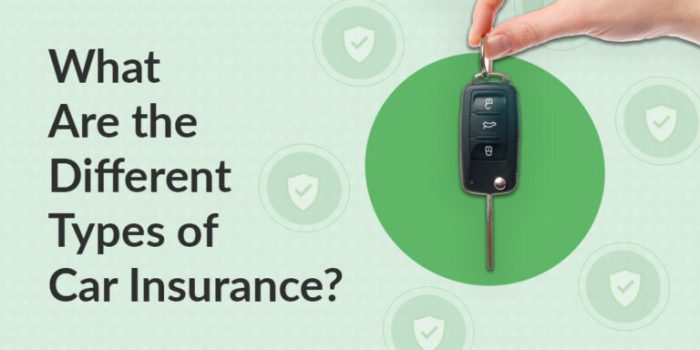I need to get car insurance – a statement many drivers utter with a mix of dread and necessity. Securing the right car insurance policy can feel overwhelming, navigating a complex landscape of coverage options, premiums, and deductibles. This process, however, is crucial for financial protection and legal compliance. Understanding the various types of coverage, comparing quotes from different providers, and choosing the plan that best suits your individual needs are key steps in this important decision.

Source: whichcar.org
This exploration will guide you through the process, helping you find the best car insurance for your circumstances.
Choosing the right car insurance involves considering several factors. Your driving history, the type of vehicle you own, your location, and the level of coverage you desire all play a significant role in determining your premium. Understanding the difference between liability, collision, and comprehensive coverage is vital. Liability insurance covers damages you cause to others, while collision covers damage to your vehicle in an accident, regardless of fault.

Source: cloudfront.net
Comprehensive coverage protects against non-collision events like theft or vandalism. By carefully weighing these factors, you can make an informed decision that balances cost and protection.
Securing car insurance might seem daunting, but understanding the process is key to protecting yourself financially and legally. This comprehensive guide will walk you through everything you need to know, from understanding different types of coverage to finding the best policy for your needs. We’ll cover essential terminology, factors influencing premiums, and how to compare quotes effectively.
Understanding the Basics of Car Insurance: I Need To Get Car Insurance
Car insurance is a contract between you and an insurance company. In exchange for regular payments (premiums), the company agrees to cover certain costs associated with car accidents or damage to your vehicle. Failing to have adequate insurance can lead to significant financial burdens and legal consequences.
Types of Car Insurance Coverage
- Liability Coverage: This is the most basic type and legally mandated in most places. It covers injuries or damages you cause to others in an accident. Liability coverage typically includes bodily injury liability and property damage liability.
- Collision Coverage: This covers damage to your car resulting from a collision, regardless of who is at fault. It’s crucial for protecting your investment.
- Comprehensive Coverage: This covers damage to your car from events other than collisions, such as theft, vandalism, fire, or hail. It provides broader protection than collision coverage alone.
- Uninsured/Underinsured Motorist Coverage: This protects you if you’re involved in an accident with an uninsured or underinsured driver. It can cover medical expenses and vehicle repairs.
- Medical Payments Coverage (Med-Pay): This covers medical expenses for you and your passengers, regardless of fault. It’s a valuable addition to your policy.
- Personal Injury Protection (PIP): This covers medical expenses and lost wages for you and your passengers, regardless of fault. It also often covers expenses for passengers in your car, even if they are not related to you.
Factors Affecting Your Car Insurance Premiums, I need to get car insurance
Several factors influence how much you’ll pay for car insurance. Understanding these factors can help you find the best possible rate:
- Driving Record: Accidents and traffic violations significantly impact your premiums. A clean driving record will generally result in lower rates.
- Age and Gender: Younger drivers and males typically pay higher premiums due to statistically higher accident rates.
- Vehicle Type: The make, model, and year of your car affect your premiums. Sports cars and luxury vehicles often command higher rates.
- Location: Your address influences your premiums, as insurance companies consider the risk of accidents and theft in different areas.
- Credit Score: In many states, your credit score is a factor in determining your insurance rates. A good credit score can lead to lower premiums.
- Driving History: Your driving history, including the number of miles you drive annually, plays a role in determining your premium.
- Coverage Levels: Choosing higher coverage limits will result in higher premiums, but it offers greater protection.
Finding the Right Car Insurance Policy
Shopping for car insurance can feel overwhelming, but with a systematic approach, you can find the best policy for your needs and budget.
Comparing Quotes from Multiple Insurers
Don’t settle for the first quote you receive. Compare quotes from at least three different insurance companies to ensure you’re getting the best possible price and coverage. Use online comparison tools or contact insurers directly.
Understanding Your Policy Documents
Once you’ve chosen a policy, carefully review the policy documents to understand your coverage limits, deductibles, and exclusions. Don’t hesitate to contact your insurer if you have any questions.
Negotiating Your Premiums
In some cases, you may be able to negotiate your premiums with your insurer. Highlight your clean driving record, safety features in your car, or any other factors that might qualify you for a discount.
Frequently Asked Questions (FAQ)
- Q: How often should I review my car insurance policy?
A: It’s recommended to review your policy at least annually, or whenever there’s a significant life change (e.g., new car, change of address, marriage). - Q: What is a deductible?
A: A deductible is the amount you pay out-of-pocket before your insurance coverage kicks in. - Q: What happens if I get into an accident?
A: Report the accident to your insurer immediately. Follow their instructions for filing a claim and gathering necessary information. - Q: Can I get car insurance if I have a bad driving record?
A: Yes, but you’ll likely pay higher premiums. Consider working with a specialized insurer who works with high-risk drivers. - Q: What is SR-22 insurance?
A: SR-22 insurance is proof of financial responsibility, often required by states after serious driving offenses. It certifies that you have the minimum required liability coverage. - Q: How can I lower my car insurance premiums?
A: Maintain a clean driving record, consider safety features in your car, shop around for quotes, and explore discounts offered by insurers.
Resources
Call to Action
Don’t wait until it’s too late. Get a car insurance quote today and protect yourself and your vehicle. Click here to compare rates from top insurers!
Obtaining car insurance is a significant responsibility, but by understanding the various aspects involved and comparing different options, the process becomes manageable. Remember, the right car insurance policy provides peace of mind, knowing you are financially protected in the event of an accident or unforeseen circumstances. Don’t hesitate to seek professional advice if you need further assistance navigating the complexities of car insurance.
Taking the time to research and compare policies will ultimately lead to a decision that best protects you and your vehicle.
Quick FAQs
What is the minimum car insurance coverage required in my state?

Source: cloudfront.net
Minimum coverage requirements vary by state. Check your state’s Department of Motor Vehicles website for specific details.
How can I lower my car insurance premiums?
Consider factors like safe driving history, bundling policies, increasing your deductible, and opting for a less expensive vehicle.
What is uninsured/underinsured motorist coverage?
This coverage protects you if you’re involved in an accident with an uninsured or underinsured driver.
Can I get car insurance if I have a bad driving record?
Yes, but you may pay higher premiums. Several companies specialize in high-risk drivers.
How often should I review my car insurance policy?
It’s recommended to review your policy annually or whenever there’s a significant life change (new car, address change, etc.).
